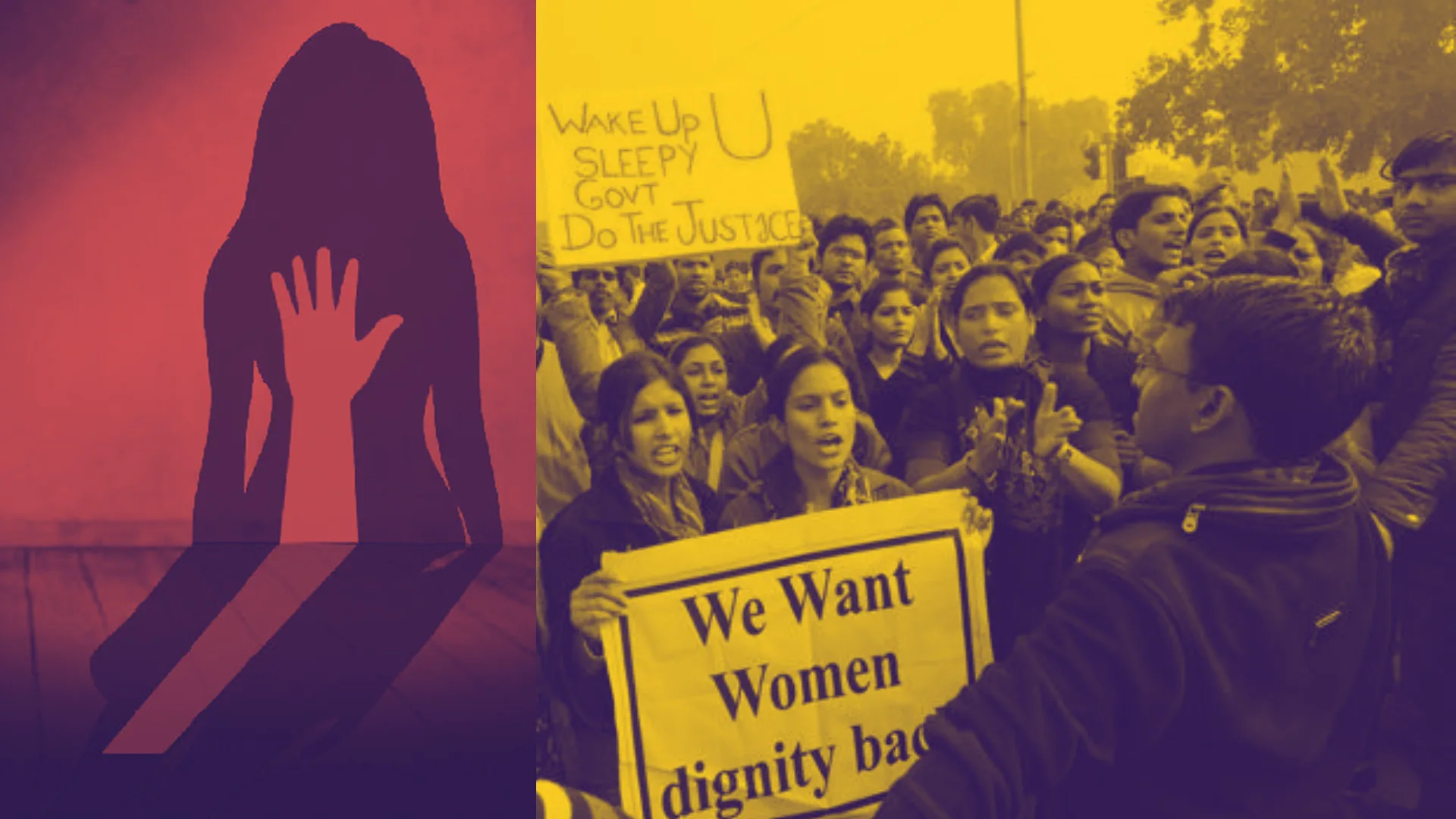It’s my second week living in Delhi. Having moved here from Kerala, I came across countless warnings from family and friends:“Stay safe,” “Carry pepper spray,” “Delhi is not a safe place for women.” At that time, I didn’t realize the depth of their concern. However, after settling in, the reality quickly became evident. The persistent, unsettling stares I’ve encountered are extremely uncomfortable. Sharing these experiences with colleagues revealed that such incidents are neither isolated nor uncommon; they are part of a troubling pattern faced by countless women in the city.
Everyday Struggles Of Women In Delhi
Vaishnavi Rastogi recalls a shocking experience from 2023 when she and a friend were surrounded by a group of drunken men while waiting for food. “Those 20 minutes felt like an eternity. The men’s stares made us feel so vulnerable. After that, we changed our route back to the hostel, fearing we might be followed,” she shares. In another incident, Vaishnavi recounts being followed by a police van in Patel Nagar. “Instead of feeling protected, I felt threatened by those who are supposed to ensure my safety,” she adds.
As the Delhi Assembly elections draw closer, political parties are intensifying their campaigns, vying for votes across the city. Among the many promises and proposals in manifestos, women’s safety is still a recurring theme. However, the question remains: will these promises translate into real change for the women of Delhi?
Delhi’s notorious reputation as a hotspot for crimes against women makes this a pressing issue for political leaders looking to secure female votes. However, many women in the city view these pledges as hollow gestures, designed more to garner votes than to bring about substantive change.
Similarly, Vanshika Tyagi narrates an incident on the Delhi Metro when a man’s relentless staring escalated into him following her out of the station. “When I saw my father waiting for me, I chose not to tell him to avoid creating panic. Such incidents force women into a state of constant fear and vigilance,” she laments. Vanshika also critiques government initiatives such as free bus services for women, arguing that such measures are superficial without strict laws and swift action against offenders.
According to Delhi Police statistics, the city recorded 2,076 cases of rape in 2024, a slight decrease from 2,141 in 2023. Cases of molestation also declined marginally, from 2,345 in 2023 to 2,037 in 2024. However, incidents of eve-teasing increased to 362 in 2024 from 281 in 2023. While these figures suggest incremental progress, they remain alarmingly high for a city aspiring to ensure women’s safety. Many cases went unreported.
Women’s Safety And The Delhi Assembly Elections
As the city gears up for elections, women’s safety is a prominent subject, though concrete commitments remain elusive. Swati Pandey recounts a disturbing encounter with a cab driver who pried into her marital status. “Out of fear, I lied, claiming to be married to a police officer,” she said. Swati highlights additional concerns like poorly lit streets, which exacerbate safety issues. She highlighted the importance of educating boys early about respecting women. “The government alone cannot shoulder the responsibility. Society must actively participate in creating safer spaces for women,” she asserts.
The 2012 Nirbhaya case still looms large in public memory. This tragic incident that shook the nation led to tougher anti-rape laws and promises of change. However, more than a decade later, women’s safety in Delhi remains a significant concern, prompting many to question the effectiveness of these reforms.
Akshita Anna Thomas voices similar frustrations. Despite increased surveillance and police presence post-Nirbhaya, the responsiveness of law enforcement remains questionable. “Even when accompanied by male friends, safety isn’t guaranteed. Complaints about harassment are often dismissed as trivial,” she observes.
Strict Punishment Requires Careful Consideration
Political parties must prioritize actionable plans for women’s safety in their manifestos. Enhanced street lighting, secure public transportation, and stringent punishments for offenders should be top priorities. The 2012 case brought these issues into the spotlight, but over a decade later, voters are demanding accountability and tangible results.
Swastika, a newcomer to Delhi, shares how her friends warned her against venturing out alone, even during the day. “National capitals should set an example in ensuring women’s safety. Delhi’s reputation as the ‘rape capital’ should be a call to action, not an accepted norm,” she said. Political leaders must address this concern not just with promises but with visible and effective measures.
Meanwhile, Poorvi, a native of Delhi, raised concerns about her family’s reluctance to support her late-night shifts due to safety issues in the city, reflecting the widespread fear women face. It’s not just the late hours but the overall unsafe environment that restricts women’s freedom. “Raising awareness and educating boys is vital. Teaching respect, consent, and boundaries within families is key to changing societal attitudes,” she added.
Looking Ahead
Despite some progress, women’s safety in Delhi remains a daunting challenge. Government efforts, including increased monitoring and gender-sensitive initiatives, must be reinforced by societal change. Public participation in crime prevention, coupled with tougher legislation and stricter enforcement, is crucial. As Srishti Mukherjee aptly states, “Don’t ask why women go out at night. Question those who make the night unsafe for them.”
Women in Delhi, like women everywhere, deserve the right to live, work, and move freely without fear. As the assembly elections approach, it’s vital for political leaders to back their promises with meaningful action. Without this, the cycle of fear and vigilance will continue, leaving women in Delhi longing for the freedom they rightfully deserve.
ALSO READ: ‘Delhi Needs a Change:’ Residents of Delhi Voice Their Dissatisfaction




